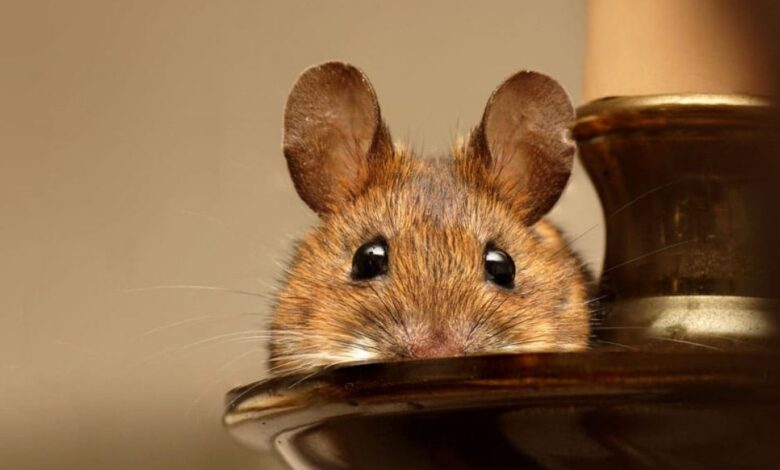Why Mice Love Your Home — And How to Keep Them Out

When it gets chilly, mice love to snuggle up in our homes for food and warmth. They’re not just pesky; they can spread diseases and allergies. Want to keep them out? Start by figuring out what lures them in.
Things like crumbs, pet food, and open rubbish bins act like a big welcome sign. Spotting and fixing these issues is the first step to mouse-proofing your home. Try sealing up any openings and keeping things tidy to keep these unwanted visitors away and avoid the hassle they bring.
Preventing Mice Through Cleanliness and Proper Food Storage
Keeping your home clean and storing food right are great ways to stop mice from moving in. These little guys are always after a quick snack, and they can’t resist stuff like pet food, crumbs, and rubbish.
To keep ’em away, try putting all your food in airtight containers so they can’t sniff out anything tasty. It’s a good idea to regularly clean up crumbs and spills in the kitchen and dining room, ’cause even tiny bits can bring a whole mouse family over.
Make sure your bins are shut tight, so mice don’t end up feasting on your leftovers. Keeping things tidy and clean really cuts down the chance of a mouse problem. It’s amazing how small changes can keep these pesky rodents out of your house!
Warmth and Shelter as Key Reasons Mice Enter Homes
When the British winter rolls in, it’s not just us humans looking to keep warm; mice are on the hunt for cosy spots too, and our homes seem like the perfect escape.
Picture this: you’re curled up with a cuppa, and unbeknownst to you, a little mouse is eyeing the warmth of your living room. These crafty critters can slip through the tiniest of gaps around your windows, doors, and the house foundation.
So, it’s a smart move to check these areas and seal any openings. Weatherstripping and caulk are your best friends here, not just for keeping the mice out, but also for retaining heat and cutting down on those pesky heating bills.
Don’t overlook vents, chimneys, and small wall cracks either, as mice are sneaky and can find ways in that we easily miss. It’s worth getting into the habit of checking these spots regularly, especially after a storm or very windy day, which can create new gaps.
Be sure to inspect areas like walls, window screens, and around pipes, as mice love these sneaky entry points. For the bigger holes, steel wool and sturdy caulk work wonders, creating a barrier that these tiny teeth can’t chew through.
Now, if you’re scratching your head, unsure of where to start, experts are just a call away. They can pinpoint hidden entryways and offer practical advice on keeping mice out for good.
Besides keeping unwanted guests at bay, sealing up these spots will make your home warmer and more comfortable. So why not take these steps now? You’ll enjoy a mouse-free, snug British home all winter long, and maybe save a bit on your heating bill too.
Inspecting the Home for Mice Entry Points
Wanna keep mice out of your home? Give your place a good look-over inside. Check for tiny cracks or holes in the walls, especially near doors and windows. Even a little tear in a screen can let mice slip in, so make sure everything’s in top shape.
Also, have a peek around pipes and utility lines—mice love those spots. Filling gaps with steel wool or caulk works great since mice can’t chew through them easily. By checking these areas, you’re way less likely to deal with mice sneaking in.
Nocturnal Nesting Habits and How to Prevent Them
Mice love sneaking around at night, looking for quiet corners in your home to make their nests. They’re big fans of messy places like attics, basements, and garages, where they can find stuff to build their cosy little homes.
If you want to keep them away, try tidying up these areas. Store things neatly in sealed containers so mice can’t use them. It’s a good idea to check for signs like droppings and chew marks on wood or boxes.
Catching these early can stop a bigger problem later. If you do spot any signs of mice, think about calling a pest control expert to sort it out quickly, keeping your home mouse-free.
Managing Outdoor Spaces to Deter Mice
Mice often find their way into your home, and a messy outside area is like an open invitation. Let’s spruce up the garden and keep those uninvited guests at bay.
First, grab your clippers and give those trees and bushes a trim. Overgrown branches can act like a little highway for adventurous mice, leading them straight to your windows or roof.
Plants like ivy and creepers are particularly sneaky, as mice can climb them with ease. So, keep everything neat and tidy to block their path.
If you’ve got a pile of firewood, it’s time for a move. Mice love the cosy nooks and crannies among the logs—perfect for setting up a little mouse motel.
Keep your woodpile at least 20 feet from your home and store it off the ground if you can. This small shift makes your wood stack less appealing to our furry friends.
Gardens are lovely, but they can also be a mouse haven if left untended. Regularly mow the lawn, and don’t let leaves pile up. A clean garden means fewer hiding spots for mice.
After tidying up, check for any gaps or holes in your home’s exterior and seal them. This makes it even harder for any critters to sneak in.
For a natural deterrent, why not try some peppermint oil? Mice hate the smell, so it could save you a few headaches. Dab a bit on cotton balls and place them around the garden or by potential entry points. Refresh the oil every couple of weeks to maintain its effectiveness.
By following these friendly tips, you’ll be making your home a much less attractive spot for any mouse looking to settle in. So, grab your tools and start tidying up—your home will thank you!
Using Natural Repellents
To naturally deter mice, you can use smells and sounds they don’t like. Natural Deterrents work well with sealing off entry points. Pop some peppermint oil-soaked cotton balls in spots where mice might roam; they can’t stand the smell. C
love and cinnamon oils work too. You could also try ultrasonic devices that send out high-pitched sounds in areas like basements and attics to scare them off. Just remember, these work best when used with other tricks.
Vinegar and mint plants have strong smells mice avoid, so they’re good options too. Mixing these natural tricks with regular home upkeep can help keep your place mouse-free.
Conclusion
Mice love sneaking into homes for food and warmth, but nobody wants them around. To keep them out, try to keep things tidy, block any small gaps they could use to get in, and use natural ways to scare them off.
Check your place now and then to catch any issues early. This way, you can keep your home comfy and free from mice, while avoiding stress and health worries. These easy tips will help you enjoy a peaceful and mouse-free home all year round.




